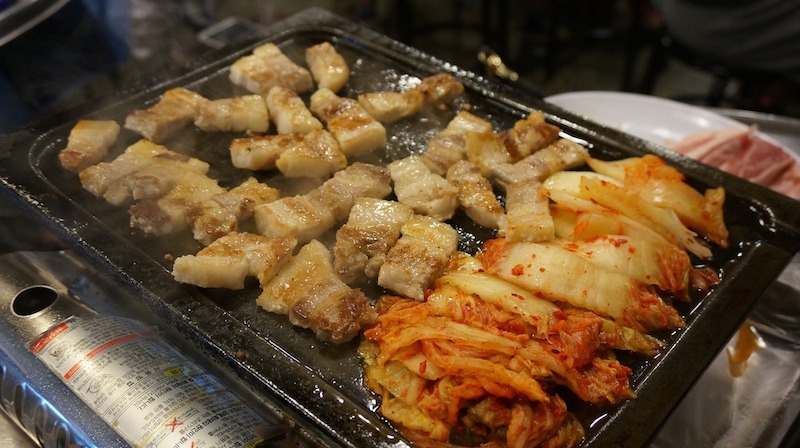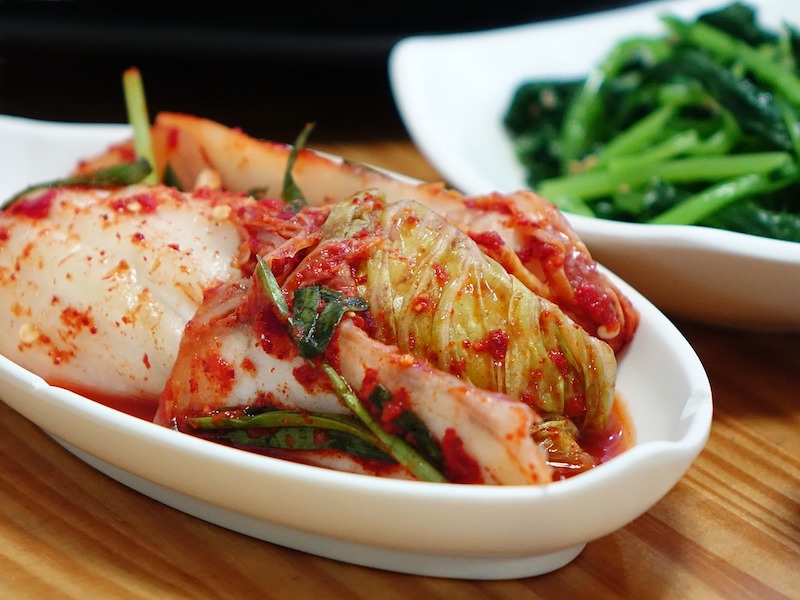Being a loyal fan of Korean food has its benefits. The best thing about it during this pandemic is that feasting on the staple banchan called Kimchi could actually help you combat the coronavirus. In fact, any dish made from fermented cabbage has been suggested in helping to lower COVID-19 fatality rates. Allow us to make sense of this!
Also read: 15 Korean Dishes to Try That You Always See in K-Dramas
The study behind Kimchi vs. COVID-19

Dr Jean Bousquet, who’s an expert in respiratory diseases and a professor in Pulmonary Medicine at the University of Montpellier, France, recently published a study on the Clinical and Translational Allergy website. The study claims a correlation between a place’s COVID-19 fatality rate and the dietary inclinations of its inhabitants, specifically with fermented cabbage.
Fermented cabbage is scientifically proven to boost one’s immune system thanks to high antioxidants, as well as being able to decrease the levels of ACE2. If you don’t know what that is, simply put, ACE2 is an enzyme which the coronavirus uses to enter the lungs. Therefore, the more you reduce your ACE2, the safer your body will be against COVID-19. The easiest way to reduce ACE2? You’ve guessed it — eating more good ol’ fermented cabbage!

Sauerkraut served with German sausages
The study draws South Korea and Germany as specific examples. The two countries have Kimchi and Sauerkraut respectively as culinary staples. Both are types of fermented cabbage albeit served in different ways, and both are almost always served in every restaurant in their respective countries.
Now, if we look at the COVID-19 statistics of the two countries, here’s what we’ve got as of writing: South Korea has 13,816 confirmed cases with 296 deaths; Germany has approximately 203,000 confirmed cases with 9,172 deaths. That makes their fatality rates at 2.14% and 4.51% respectively. By citing these low percentages, we’re not demeaning the value of the lives lost; rather, this is to say that these low fatality rates support the hypothesis of Dr Jean Bousquet’s study.
Other countries with low fatality rates and consume a hefty amount of fermented cabbage and milk include Taiwan, Bulgaria, Greece, Romania, and Turkey, among others.
The limitations of the study
Differences in mortality rates, of course, aren’t solely based on dietary habits. Other things to be considered are a nation’s healthcare system, reporting method, and government response to COVID-19, to name a few. In fact, Dr Bousquet concluded the study by stating that many factors play a role in the severity of COVID-19, from early education to rapid organisation.
No harm in adding more greens to your diet

But the doctor goes on to say that clearly, one’s diet creates a notable impact on how different bodies will combat the virus if contracted. Your diet is only one factor, but it’s a very important one which needs to be better assessed in the midst of and moving forward from this pandemic.
Moral of the story, don’t take your green vegetables for granted. Some may prove game changing against certain kinds of illnesses. Seriously, you have nothing to lose and your health to gain if you start eating vegetables religiously, especially at a time like this pandemic when fermented cabbages are the way to go. And as for us Asians, now is the best time to indulge our Kimchi cravings. Excuse us while we prepare a homemade Korean BBQ with Kimchi on the side!




